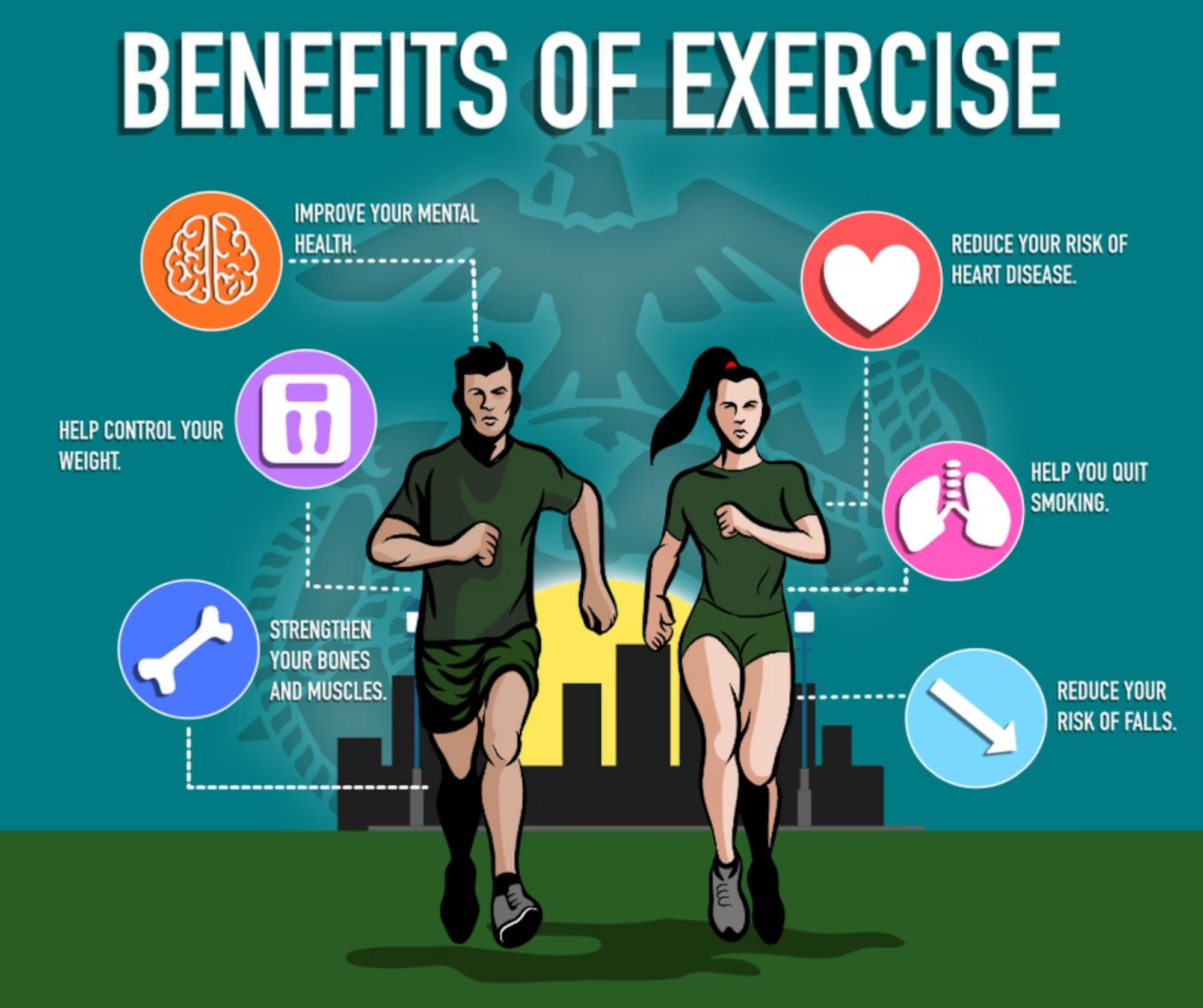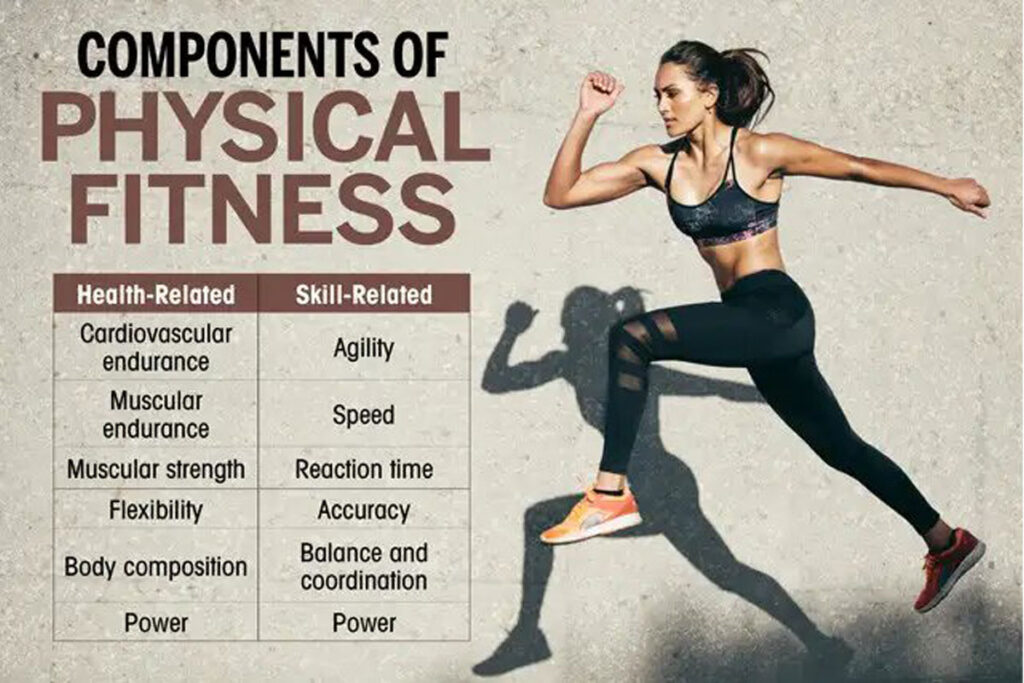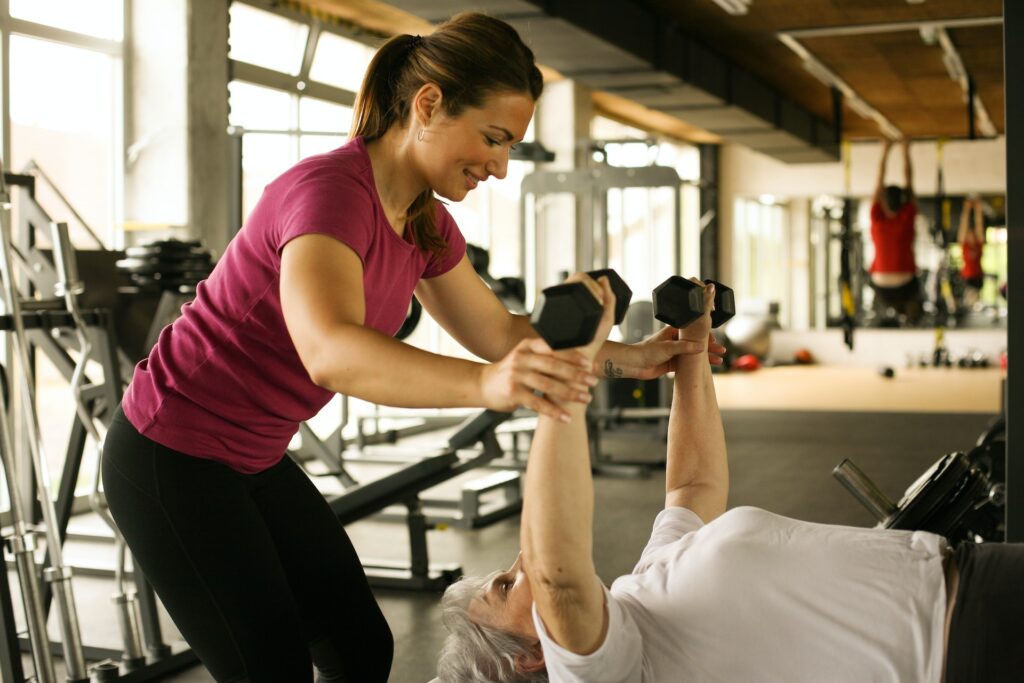Certainly! Here’s a comprehensive discussion on the most important aspects of health-related fitness, covering its components, significance, and benefits in a simple and straightforward manner.
The Importance of Health-Related Fitness
Health-related fitness is a vital aspect of our overall well-being, significantly impacting our physical health, mental clarity, and emotional resilience. It encompasses various components that contribute to a healthier lifestyle, ultimately leading to improved quality of life. Understanding what health-related fitness entails and its importance can motivate individuals to incorporate fitness into their daily routines.
What is Health-Related Fitness?
Health-related fitness refers to the physical capacities that contribute to overall health and well-being. It is distinct from skill-related fitness, which focuses on abilities that enhance performance in specific sports or activities. Health-related fitness is generally categorized into five main components:
Cardiovascular Endurance: This is the ability of the heart and lungs to supply oxygen to the muscles during prolonged physical activity. Good cardiovascular endurance allows individuals to engage in activities such as walking, running, or cycling for extended periods without excessive fatigue.
Muscular Strength: This component refers to the maximum amount of force that a muscle or group of muscles can exert in a single effort. Increased muscular strength supports daily activities and reduces the risk of injury.
Muscular Endurance: This is the ability of a muscle to sustain repeated contractions over time. Muscular endurance is essential for activities that require prolonged exertion, like lifting objects or performing tasks that demand continuous physical effort.
Flexibility: Flexibility is the range of motion available at a joint or group of joints. Improved flexibility can enhance athletic performance, reduce the risk of injuries, and contribute to better posture and balance.
Body Composition: This refers to the ratio of fat mass to lean mass in the body. Maintaining a healthy body composition is crucial for reducing the risk of chronic diseases, improving metabolic health, and enhancing overall physical performance.
Why is Health-Related Fitness Important?

1. Chronic Disease Prevention
One of the most significant reasons to prioritize health-related fitness is its role in preventing chronic diseases. Regular physical activity is associated with a lower risk of various conditions, including:
Heart Disease: Cardiovascular exercise strengthens the heart muscle and improves circulation, reducing the likelihood of heart disease.
Type 2 Diabetes: Engaging in regular physical activity helps regulate blood sugar levels and improves insulin sensitivity.
Obesity: Maintaining an active lifestyle helps control weight by burning calories and improving metabolic rate.
Hypertension: Regular exercise can help lower blood pressure and maintain it within a healthy range.
2. Improved Mental Health
Physical fitness also plays a crucial role in mental well-being. Exercise has been shown to:
Reduce Symptoms of Anxiety and Depression: Engaging in physical activity can help alleviate feelings of anxiety and depression by releasing endorphins, which are natural mood lifters.
Enhance Cognitive Function: Regular physical activity improves blood flow to the brain, which can enhance memory, focus, and overall cognitive function.
Boost Self-Esteem: Achieving fitness goals, whether big or small, can lead to improved self-esteem and confidence.
3. Enhanced Quality of Life
Being fit and healthy contributes to a better quality of life. Individuals who engage in regular physical activity often experience:
Increased Energy Levels: Regular exercise boosts energy levels and reduces feelings of fatigue, making daily tasks more manageable.
Better Sleep: Physical activity can improve sleep quality and help individuals fall asleep faster and stay asleep longer.
Social Interaction: Participating in group activities, sports, or fitness classes can foster social connections, reducing feelings of loneliness and isolation.
4. Longevity
Health-related fitness has a direct correlation with longevity. Studies consistently show that individuals who maintain a regular exercise routine tend to live longer and have a lower risk of premature death. Exercise can delay the onset of age-related diseases, allowing individuals to enjoy a more active and fulfilling life as they age.
5. Functional Independence
As we age, maintaining functional independence becomes crucial. Health-related fitness enhances our ability to perform daily activities, such as climbing stairs, carrying groceries, or playing with grandchildren. By staying fit, individuals can retain their independence and improve their quality of life as they age.
Components of Health-Related Fitness in Detail

Let’s delve deeper into each component of health-related fitness to understand its significance better.
Cardiovascular Endurance
Importance: Cardiovascular endurance is essential for overall health and well-being. It improves the efficiency of the heart and lungs, enabling individuals to perform daily activities with less fatigue.
Ways to Improve: Activities like walking, jogging, cycling, swimming, and dancing can enhance cardiovascular endurance. The general recommendation is at least 150 minutes of moderate-intensity or 75 minutes of vigorous-intensity aerobic activity each week.
Muscular Strength
Importance: Muscular strength is vital for performing everyday tasks and can help prevent injuries, especially as we age. Strong muscles support the joints and reduce the risk of falls.
Ways to Improve: Strength training exercises, such as weight lifting, bodyweight exercises (push-ups, squats), and resistance band workouts, can improve muscular strength. Aim for at least two days of strength training per week.
Muscular Endurance
Importance: Muscular endurance allows you to perform activities that require sustained effort without getting tired quickly. This is important for tasks like carrying groceries or doing yard work.
Ways to Improve: Exercises that target endurance include lighter weights with higher repetitions, circuit training, or activities like Pilates and yoga.
Flexibility
Importance: Flexibility is crucial for maintaining a healthy range of motion in the joints, preventing injuries, and improving overall physical performance. It also helps reduce muscle soreness after workouts.
Ways to Improve: Regular stretching exercises, yoga, and pilates can enhance flexibility. Incorporating dynamic stretches before workouts and static stretches afterward can be beneficial.
Body Composition
Importance: Maintaining a healthy body composition is vital for overall health. High body fat percentage, especially visceral fat, can increase the risk of chronic diseases.
Ways to Improve: A combination of regular exercise (both cardiovascular and strength training) and a balanced diet rich in whole foods can help improve body composition. It’s essential to focus on nutrient-dense foods rather than solely on calorie restriction.
Conclusion
Health-related fitness is fundamental for everyone, regardless of age or fitness level. Prioritizing its various components can lead to a healthier lifestyle, reduced risk of chronic diseases, improved mental health, enhanced quality of life, and greater longevity. By incorporating regular physical activity and focusing on nutrition, individuals can take significant strides toward achieving and maintaining their health-related fitness goals.
Remember, it’s never too late to start. Even small changes can lead to significant improvements in health and well-being. Setting realistic goals, finding enjoyable activities, and staying consistent can make a big difference. So lace up those sneakers and get moving—your body and mind will thank you!
FAQs
What is health-related fitness?
Health-related fitness refers to the components of physical fitness that contribute to overall health and well-being. It includes cardiovascular endurance, muscular strength, muscular endurance, flexibility, and body composition. Unlike skill-related fitness, which focuses on athletic performance, health-related fitness emphasizes maintaining good health and reducing the risk of chronic diseases.
Why is cardiovascular endurance important?
Cardiovascular endurance is essential for efficient heart and lung function. It enables individuals to engage in physical activities for longer periods without excessive fatigue. Good cardiovascular health reduces the risk of heart disease, high blood pressure, and diabetes. Activities like walking, running, swimming, and cycling can enhance cardiovascular endurance.
How can I improve my muscular strength?
To improve muscular strength, engage in strength training exercises, such as weight lifting, bodyweight exercises (e.g., push-ups, squats), and resistance band workouts. Aim for at least two days of strength training per week, targeting major muscle groups.
What is the difference between muscular strength and muscular endurance?
Muscular strength refers to the maximum force a muscle can exert in a single effort, while muscular endurance is the ability of a muscle to sustain repeated contractions over time. For example, lifting a heavy weight once tests strength, while doing many repetitions of a lighter weight tests endurance.
How does flexibility contribute to health-related fitness?
Flexibility allows for a greater range of motion in the joints, which is essential for performing everyday activities and preventing injuries. Improved flexibility can enhance athletic performance, promote better posture, and reduce muscle soreness after workouts. Stretching, yoga, and Pilates are effective ways to increase flexibility.
What is body composition, and why is it important?
Body composition refers to the ratio of fat mass to lean mass in the body. Maintaining a healthy body composition is crucial for reducing the risk of chronic diseases such as obesity, diabetes, and heart disease. A balanced diet and regular exercise can help improve body composition.
How often should I exercise to maintain health-related fitness?
To maintain health-related fitness, the general recommendation is to engage in at least 150 minutes of moderate-intensity aerobic activity or 75 minutes of vigorous-intensity aerobic activity each week. Additionally, strength training exercises should be performed at least twice a week.
Can I improve my health-related fitness at any age?
Yes! It is never too late to improve your health-related fitness. Regardless of age or current fitness level, incorporating regular physical activity and making healthy lifestyle choices can lead to significant improvements in health and well-being.
What are some simple ways to incorporate fitness into my daily routine?
Here are some simple ways to incorporate fitness into your daily routine:
Take the stairs instead of the elevator.
Go for a walk during lunch breaks.
Engage in active hobbies like gardening or dancing.
Participate in group fitness classes or sports.
Set reminders to stand up and move every hour.
How can I stay motivated to maintain my fitness routine?
Staying motivated can be challenging, but here are some tips to help:
Set realistic and achievable goals.
Track your progress to see improvements.
Find activities you enjoy to make exercise fun.
Join a workout group or find a workout buddy.
Reward yourself for reaching milestones.



